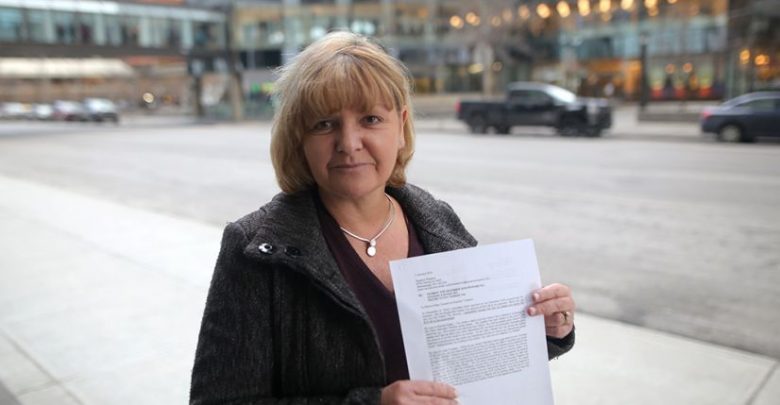 Leah Hennel/Postmedia
Leah Hennel/PostmediaAlberta rancher Sheila Griffiths is refusing to pay the government’s carbon tax on her propane bill until progress is made on the Trans Mountain pipeline.
What she fails to realize, however, is that a one-person protest will do little to change government policy.
Griffiths told CBC that refusing to pay the tax was “one thing [she] could do to have a voice on the issue.” However, unless the majority of the province follows suit, her protest will put little financial pressure on the provincial government.
Currently, families in Alberta earning less than $95,000 per year receive a full rebate to offset costs associated with the carbon levy, for which the 2019 rate is $30 per tonne. Over 3 years, approximately 60 per cent of Albertan households received carbon tax rebates. Such rebate policies suggest that most income from the carbon tax comes not from working Albertans, but from major corporations. Griffiths may make local headlines, but it’s unlikely she’ll put any serious dent in government revenues.
The provincial government should put the carbon tax on hold until ground is broken on Trans Mountain, claims Griffiths. However, this fails to acknowledge that if Alberta didn’t impose a provincial carbon levy, the federal government would impose its own due to existing federal regulations. If that were to happen, revenue from the tax would go not to the provincial government and re-enter the Albertan economy, but rather to the federal government, where they may have less impact on Albertans’ lives.
And while Griffiths is protesting in favour of advancement on the Trans Mountain pipeline, neither Premier Rachel Notley nor Prime Minister Justin Trudeau have shown any intention of abandoning the project. In autumn 2018, Notley travelled to Ottawa to discuss the pipeline with Trudeau; on January 10, Trudeau confirmed that the Liberal government is moving forward with the pipeline project with improved consultation with Indigenous peoples and environmental research.
Fundamentally, Griffiths is protesting a problem that doesn’t exist: no amount of tax evasion will undo the Federal Court of Appeals’ decision or speed up consultation.
Griffiths’ protest also misguidedly presents the carbon levy as a problem for Alberta. It’s not, because revenues from the tax are being reinvested in Alberta’s economy. For instance, $680 million was invested over 3 years in supporting coal workers and communities as Alberta transitions away from coal fuel. $1.3 billion in funding was invested to enable greater use of public transit.
These and similar investments demonstrate the carbon levy’s dual purpose: not only does it encourage individuals to choose environmentally friendly options, but it also promotes diversification of Alberta’s energy economy, moving to reduce the province’s reliance on oil. Consequently, carbon tax revenues may help to offset any potential damage done to the Albertan economy by the stalling of the Trans Mountain pipeline expansion.
At the end of the day, Griffiths’ “protest” is merely another event in a string of incidents sparked by oil hysteria. In the face of comparatively moderate government policies to address immediate environmental crisis — some countries have completely banned plastic bags, while South Africa restricted citizens’ water use to offset a water crisis — many see the temporary loss of oil revenue as the most pressing concern for Albertan, even Canadian, society. When or if Trans Mountain is ever completed, the carbon levy will have aided Alberta by not only protecting the environment, which all natural resource economies depend upon, but protecting said economy by transitioning away from oil.
Griffiths is admirable for standing up for beliefs; unfortunately, her protest is both ineffectual and misguided.




